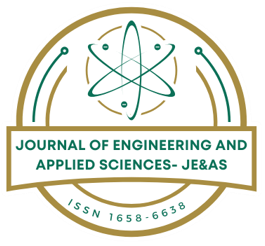| Original Research Online Published: 11 Mar 2020 Published online: 11 Mar 2020 | ||||||||||||||||||||||||||||||
Experimental Study of the Influence of Process Conditions on Tubular Reactor Performance M.k. Al Mesfer, M. Danish.
| ||||||||||||||||||||||||||||||
| How to Cite this Article |
| Pubmed Style Mesfer MA, Danish M. Experimental Study of the Influence of Process Conditions on Tubular Reactor Performance. Journal of Engineering and Applied Sciences. 2016; 3(1): 17-25. doi:10.5455/jeas.2016050102 Web Style Mesfer MA, Danish M. Experimental Study of the Influence of Process Conditions on Tubular Reactor Performance. https://jecasmu.org/?mno=91795 [Access: December 25, 2025]. doi:10.5455/jeas.2016050102 AMA (American Medical Association) Style Mesfer MA, Danish M. Experimental Study of the Influence of Process Conditions on Tubular Reactor Performance. Journal of Engineering and Applied Sciences. 2016; 3(1): 17-25. doi:10.5455/jeas.2016050102 Vancouver/ICMJE Style Mesfer MA, Danish M. Experimental Study of the Influence of Process Conditions on Tubular Reactor Performance. Journal of Engineering and Applied Sciences. (2016), [cited December 25, 2025]; 3(1): 17-25. doi:10.5455/jeas.2016050102 Harvard Style Mesfer, M. A. & Danish, . M. (2016) Experimental Study of the Influence of Process Conditions on Tubular Reactor Performance. Journal of Engineering and Applied Sciences, 3 (1), 17-25. doi:10.5455/jeas.2016050102 Turabian Style Mesfer, M.k. Al, and M. Danish. 2016. Experimental Study of the Influence of Process Conditions on Tubular Reactor Performance. Journal of Engineering and Applied Sciences, 3 (1), 17-25. doi:10.5455/jeas.2016050102 Chicago Style Mesfer, M.k. Al, and M. Danish. "Experimental Study of the Influence of Process Conditions on Tubular Reactor Performance." Journal of Engineering and Applied Sciences 3 (2016), 17-25. doi:10.5455/jeas.2016050102 MLA (The Modern Language Association) Style Mesfer, M.k. Al, and M. Danish. "Experimental Study of the Influence of Process Conditions on Tubular Reactor Performance." Journal of Engineering and Applied Sciences 3.1 (2016), 17-25. Print. doi:10.5455/jeas.2016050102 APA (American Psychological Association) Style Mesfer, M. A. & Danish, . M. (2016) Experimental Study of the Influence of Process Conditions on Tubular Reactor Performance. Journal of Engineering and Applied Sciences, 3 (1), 17-25. doi:10.5455/jeas.2016050102 |
 Submit Article
Submit Article - Author Login
- Reviewer Login
- About Publisher
- Peer Review Policy
- Author's Rights and Obligations
- Publication Ethics and Publication Malpractice Statement
- Conflict of Interest Policy
- Plagiarism Policy
- Protection of Research Participants (Statement On Human And Animal Rights)
- Privacy Policy
- Corrections, Retractions & Expressions of Concern
- Self-Archiving Policies
- Statement of Informed Consent
- Terms of Use
- License Information
- Copyright Information
- Statement on the Use of Generative AI
- ISSN: 1658-6638 (print)
- ISSN: 1658-7073 (electronic)

